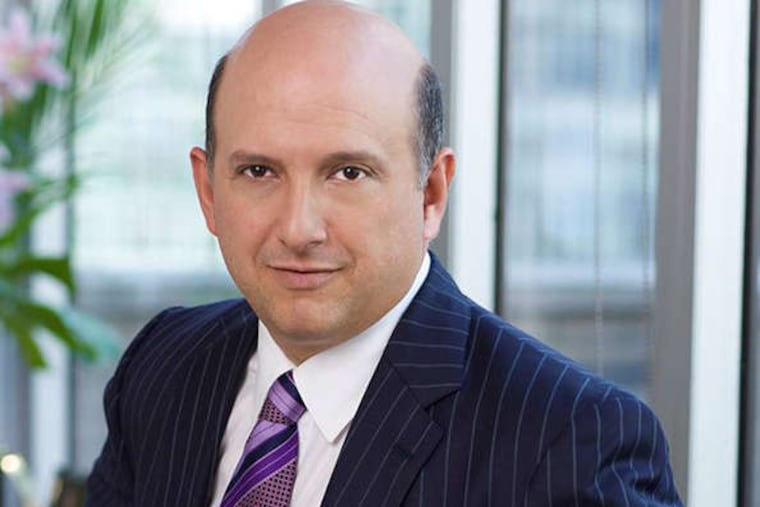Philly real estate investor Nicholas Schorsch, his former CFO and company settle with SEC for more than $60M
AR Capital and its partners Schorsch and Block "benefited themselves greatly at the expense of shareholders," said the SEC. The company and partners did not admit wrongdoing.

The Securities and Exchange Commission on Tuesday settled with AR Capital, its founder Nicholas S. Schorsch, and former CFO Brian Block for more than $60 million to resolve charges ranging from defrauding investors to falsifying records.
The SEC charged Jenkintown scrap metal heir Schorsch with stealing millions of dollars in two separate mergers between real estate investment trusts (REITs) managed by his company, AR Capital. They agreed to a penalty of more than $60 million in disgorgement, interest and civil penalties.
According to the SEC’s complaint, between late 2012 and early 2014, AR Capital arranged for American Realty Capital Properties, a publicly traded REIT, to merge with two publicly held, non-traded REITs. The SEC alleges that AR Capital, Schorsch, and Block inflated an incentive fee in both mergers, which allowed them to obtain about 2.92 million additional partnership units as part of their compensation.
“REIT managers and their professionals have an obligation to tell the truth when making disclosures to shareholders about their compensation,” said Marc P. Berger, director of the SEC’s New York Regional Office in a news release. “As we allege in our complaint, AR Capital and its partners Schorsch and Block failed to do so and benefited themselves greatly at the expense of shareholders."
The SEC’s complaint, filed in federal district court in Manhattan, charges AR Capital and Block with violating anti-fraud provisions and falsifying books and records.
Without admitting or denying the allegations, AR Capital, Schorsch, and Block consented to a final judgment of more than $39 million, which includes cash and the return of the wrongfully obtained ARCP operating partnership units; and civil penalties of $14 million against AR Capital, $7 million against Schorsch, and $750,000 against Block.
The settlements are subject to court approval.
In 2016, Schorsch was also sued by Malvern investment giant Vanguard Group.
That lawsuit alleged “a multiyear fraud and attempted cover-up” after Schorsch sent out seven quarters of false earnings reports to shareholders and the SEC.
Two Schorsch lieutenants were later convicted of fraud; Schorsch was not charged.
Vereit Inc., successor to the former real estate investment company American Realty Capital Partners Inc. set up by Schorsch, agreed to pay Vanguard $90 million to settle. Vanguard’s 150-page complaint alleged that fraud “was orchestrated by the top executives” at Schorsch’s company, which was at one time among the nation’s largest REITs, with more than $30 billion of real estate at its height in the early 2010s.
Other Schorsch-backed companies employed brokers such as Austin Dutton, who pushed Schorsch-backed real estate stocks and closed-end funds.
Pennsylvania state securities officials levied their highest-ever fines against brokerage Newbridge Securities of Boca Raton, Fla., and Dutton of Doylestown, for selling risky real estate funds set up by Schorsch that were “unsuitable” for Philadelphia police officers and other city workers for their retirement funds.
Schorsch bought thousands of commercial properties, from blocks of stores whose mortgages had been controlled by GE Capital to Red Lobster restaurants and other chain eateries. Schorsch and his supporters said Schorsch had developed a new way to invest in real estate, sharing future profits rather than up-front fees.
But “the true primary purpose in Schorsch’s buying spree” was “to rob from shareholders and give to himself and his friends,” according to Vanguard’s suit.
According to the suit, Schorsch “transferred hundreds of millions of dollars to entities controlled by him and by other senior insiders” in 2013 and 2014.
According to Vanguard, Schorsch and his helpers reported sharply rising earnings through those years, persuading Vanguard and other professional investors to buy the stock, after certifying that the company had solid financial controls and honest financial reporting.